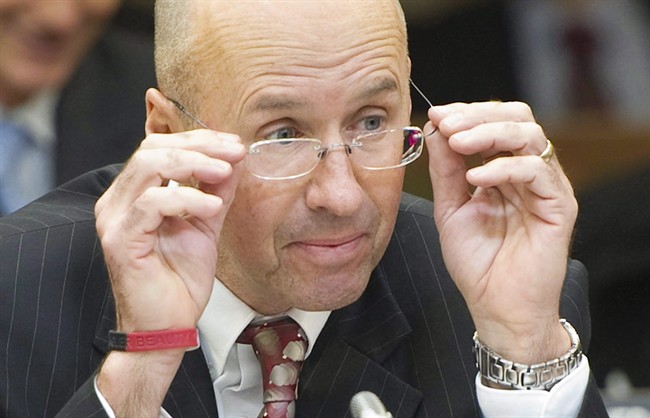OTTAWA – The International Monetary Fund is giving high marks to Kevin Page for his work as Canada’s first parliamentary budget officer, but is studiously avoiding picking sides in the PBO’s ongoing feud with the Harper government.

In a review of global budget watchdogs, the IMF devotes nine pages to the trials and travails of Page’s five years trying to shine a torchlight in the government’s murky budget process — and especially on the toxic responses he got from Harper’s ministers.
“Despite the controversy that has often surrounded the PBO, the office has built up a good reputation, both domestically and internationally, and gain(ed) credibility,” the report states.
“The strategy of being front and centre on the fiscal policy issues of the day, combined with transparent reporting, and an active media approach, has proven successful in raising the media profile and the influence of the council.”
The report concludes that the tensions between the government and Page stem from early confusion about the roles and responsibilities of the budget office, which was located in the office of the Library of Parliament and hence gave Page “fewer teeth” than similar officers around the world.
The confusion became real when Page, determined to operate transparently, decided from the outset to make his reports public, whereas the “Library of Parliament provides confidential services to members of Parliament.”

Get breaking National news
Page went further in courting the media, the IMF notes, even offering briefings on how best to understand and use his reports.
That approach, however — while successful in promoting the work of the PBO — has “also placed the council at the centre of many high-profile disputes with the government,” the report says, “resulting in the PBO turning to the courts for clarification on issues related to its institutional set up and independence.”
The report also warns the emphasis on Page could diminish the PBO’s influence following his departure, which occurred in March. The office is now headed by Page’s interim replacement, Sonia L’Heureux, while the government continues to search for a full-time replacement.
“The new PBO will face a number of challenges as uncertainties remain about the mandate, the role, and the future of the body,” the report states.
L’Heureux has already had her own run-ins with the Harper government. Last month, she complained that numerous federal departments failed to meet the deadline for information on budget cuts despite a court ruling that found her office was entitled to the data.
On the key question of which side was the most accurate in its accounting, the report judges that much of the infighting was over very small change. Overall, the PBO’s and government’s fiscal forecasts have been very close, although a table of the error range in forecasting shows the slight edge goes to Finance Minister Jim Flaherty.
But the IMF notes that one of the key objectives of having a budget watchdog is to improve the government’s accuracy through competition. In this, the presence of the PBO might have had an impact, the IMF researchers say, noting that Finance’s fiscal estimates have been closer to the mark since the creation of the PBO in 2008 than in previous years.
As well, the report notes that Page was pilloried in some quarters for daring to issue his own independent economic growth forecast, whereas Finance uses an economic consensus. The result in the first try was that Page’s 1.9 per cent forecast was a lot closer to the 1.8 per cent that occurred — since revised to 1.7 — than the government’s 2.2 estimate.
The IMF also points out that Page was first to sound the alert about the impact on future budgets of the aging baby boomer generation. The government later responded with initiatives to control health care costs and to rein in the growth in old age security (OAS) benefits by phasing in an an increase in the age of entitlement from 65 to 67.
“It can be argued that PBO generating forecasts has created competition for the government’s fiscal forecasts and created incentives to examine the methodological approaches,” the report says.
Asked to comment on the report, Page would only say he had not yet read it.





Comments